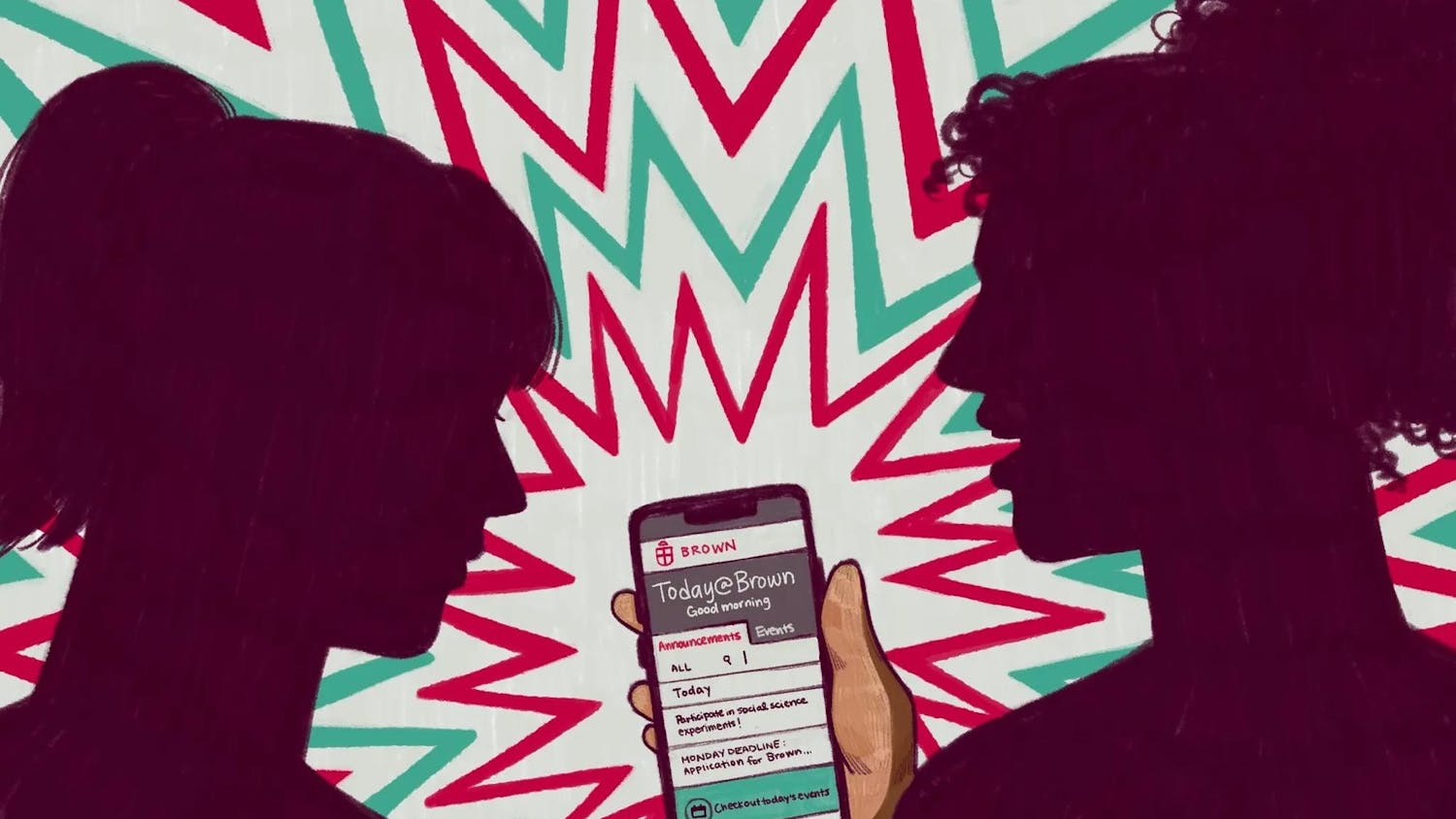When I first came to Brown as an international first-year, I arrived on campus weary and jetlagged from 24 hours of traveling. I proceeded to spend the next few days absorbing information about my new surroundings and playing icebreaker games with my international orientation buddies.
Overall, the orientation was entirely enjoyable, and it was easy to feel comfortable at Brown — fellow first-years were eager to chat, mentors wore brightly colored T-shirts to be more recognizable from a distance and the group activities were not unbearably corny. I appreciated the efforts of the coordinators of the three-day orientation — the International Mentoring Program — to really assist incoming first-years and transfers in getting used to Brown, and I committed to the group as a mentor for the next two years.
I realize that my own experience as an international student is not necessarily typical — after all, I had gone to schools where classes were taught in English my whole life. The possibility that my positive attitude toward the program and international orientation is a complete anomaly struck me as I read The Herald's coverage of the program ("U. to increase international student support," March 8). The article interviewed three first-years from China who agreed that Brown lacked "sufficient support services" for incoming first-years "even during the (International Mentoring Program) orientation." The three interviewees raised concerns to The Herald and to the Undergraduate Council of Students that more help needed to be provided to international first-years.
First of all, I was alarmed — during my two years as a mentor, none of my mentees had approached me to say the program was lacking. Did the incoming international first-years really have so little faith and trust in us mentors to help them in their transition into the Brown community? Were we really doing such a consistently poor job at being welcoming, accommodating and helpful?
I suddenly felt guilty that perhaps my two years' commitment as a mentor had not helped my mentees but had merely left them bewildered, distraught and probably feeling unable to be open with me and ask for the help that they needed. I briefly contemplated sending an email to all 20 of my past mentees, apologizing for any absenteeism or negligence I had displayed — but then I continued to read the rest of the article.
Now, I do not wish to sound like a jaded, old senior who starts off her bitter commentary on the younger classes with "in my day," but I do remember being a little more independent during my own first-year orientation. I remember signing up for a cell phone contract at the AT&T store during a mentor-led trip to the Providence Place Mall and opening a bank account after standing in line for a little over 10 minutes at the orientation bank fair on campus.
The International Mentoring Program is what its name suggests — a mentoring program. Student volunteers try to create a safe atmosphere for incoming students to familiarize themselves with on-campus resources and to ask questions to upperclassmen who had gone through the same transition experience. The program pairs mentors with small groups of new students to create a close-knit environment for the entire academic year, which, surprisingly enough, almost exactly resembles one of the recommendations made by an interviewee in the article.
It does not offer personalized logistics planning, it is not a catered travel agency and it is certainly not a babysitting service. The program does not have the means to conduct tours of Providence or airport pickup services — but the mentors are more than capable and willing to answer students' questions about how to use Rhode Island Public Transit Authority services, where to sign a cell phone plan contract and how to get to Brown from the airport.
Many of the suggestions made by the article are either impractical given the program's budget and resource constraints or are already offered by the program. It is good to see that international students are taking the initiative to work with the University to increase support in areas that are beyond the current scope of international orientation as offered by the program.
But more importantly, I would keep urging students to take the simpler path of actually making use of readily available resources on campus, such as their mentors. Unfortunately, these resources will not guarantee incoming students a hassle-free, instant acquisition of a cell phone and bank account. But I am confident that admitted Brown students are smart and independent enough to work things out after a nod in the right direction.
After all, college is a time for students to learn how to be adults for the first time, and the choice that international students make to study abroad should be particularly telling of our desire for an experience that allows for more independence. Culture shock, language barriers and living away from home are all difficulties to overcome — but these are opportunities for all of us to grow up.
Sarah Yu '11 invites all international first-years to actually attend international orientation and yearlong International Mentoring Program events before making suggestions for improvement to the University and The Herald. She can be reached at xia_yu@brown.edu.




